White House Clinics strives to ensure continuous measurable quality improvement in patient care, clinical processes, and efficiency and effectiveness of clinical services and management. White House Clinics are proud to offer quality healthcare that improves the lives of our patients and improves their overall wellness.
Click or tap on the quality measure to find out why each measure is of great importance to our patients’ wellbeing.
*Data from 2023 Uniform Data Set and HEDIS Submission
Colon Cancer Screening
Percentage of adults 50–75 years of age who had appropriate screening for colorectal cancer.Why this matters?
Early intervention is possible and premature death can be averted if patients receive appropriate colorectal cancer screening.
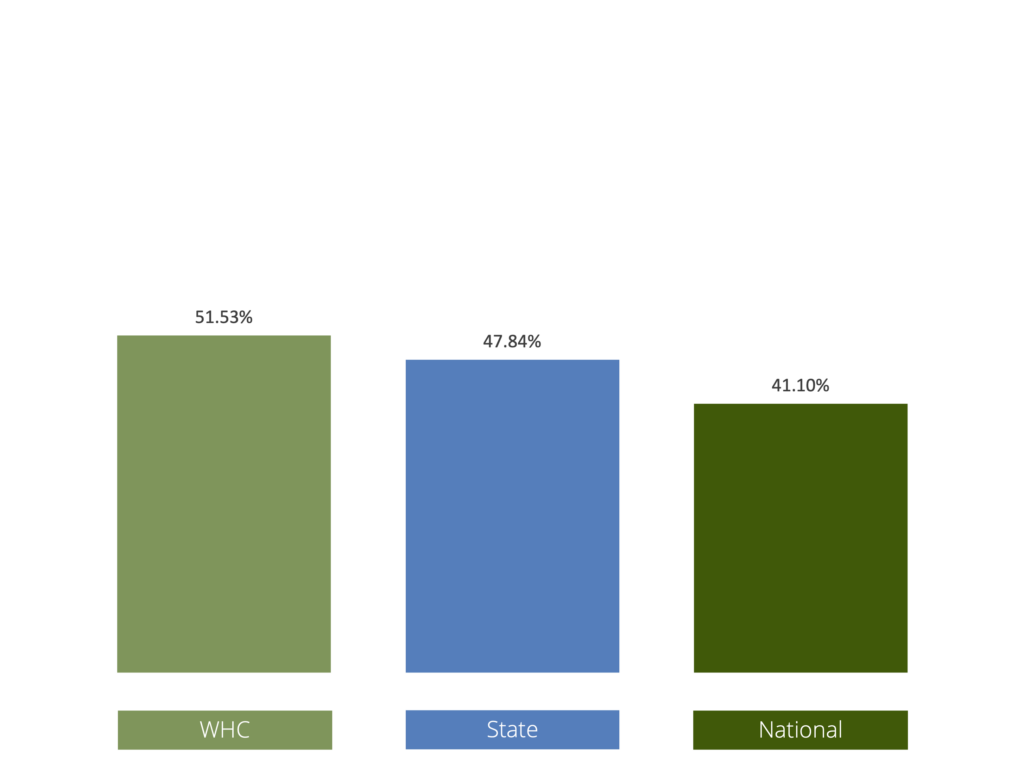
Screening for Depression and Follow-Up Plan
Percentage of patients aged 12 years and older screened for depression on the date of the visit using a depression screening tool and if positive, a follow-up plan is documented on the date of the positive screen.Why this matters?
Patients will be more likely to receive needed treatment and less likely to suffer from the sequelae of depression if they are routinely screened for depression and are provided with a follow-up plan when screened as positive.
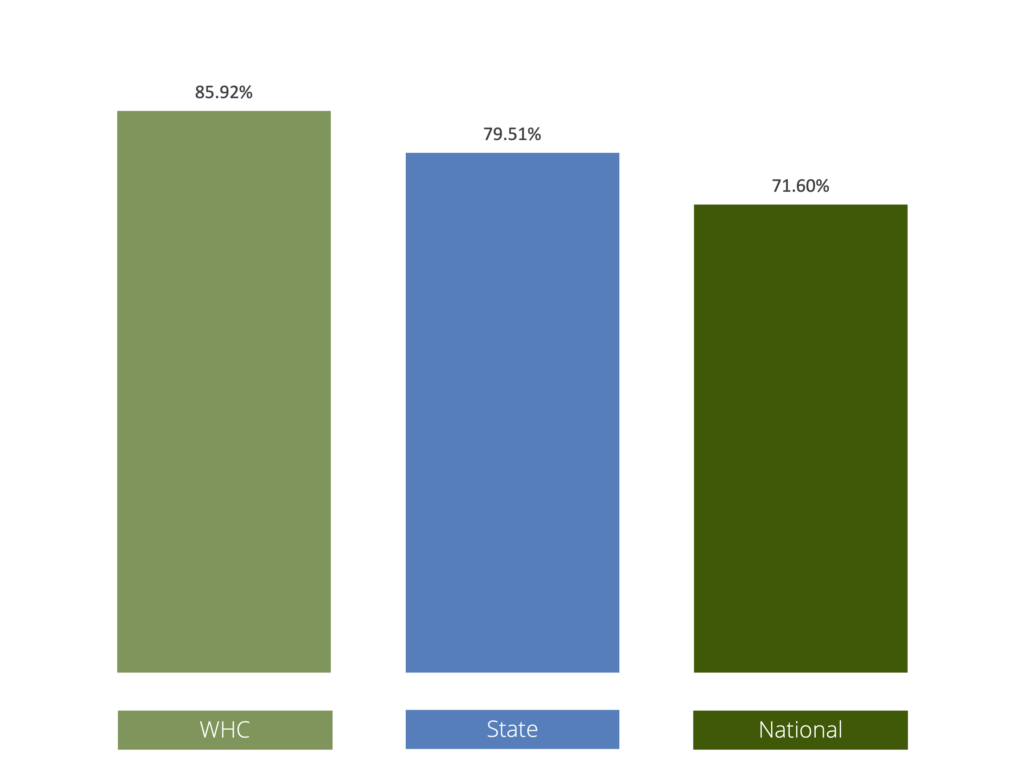
Controlling High Blood Pressure
Percentage of patients 18–85 years of age who had a diagnosis of hypertension and whose blood pressure (BP) was adequately controlled (less than 140/90 mmHg) during the measurement period.Why this matters?
There will be less cardiovascular damage, fewer heart attacks, and less organ damage later in life if there is less uncontrolled hypertension.
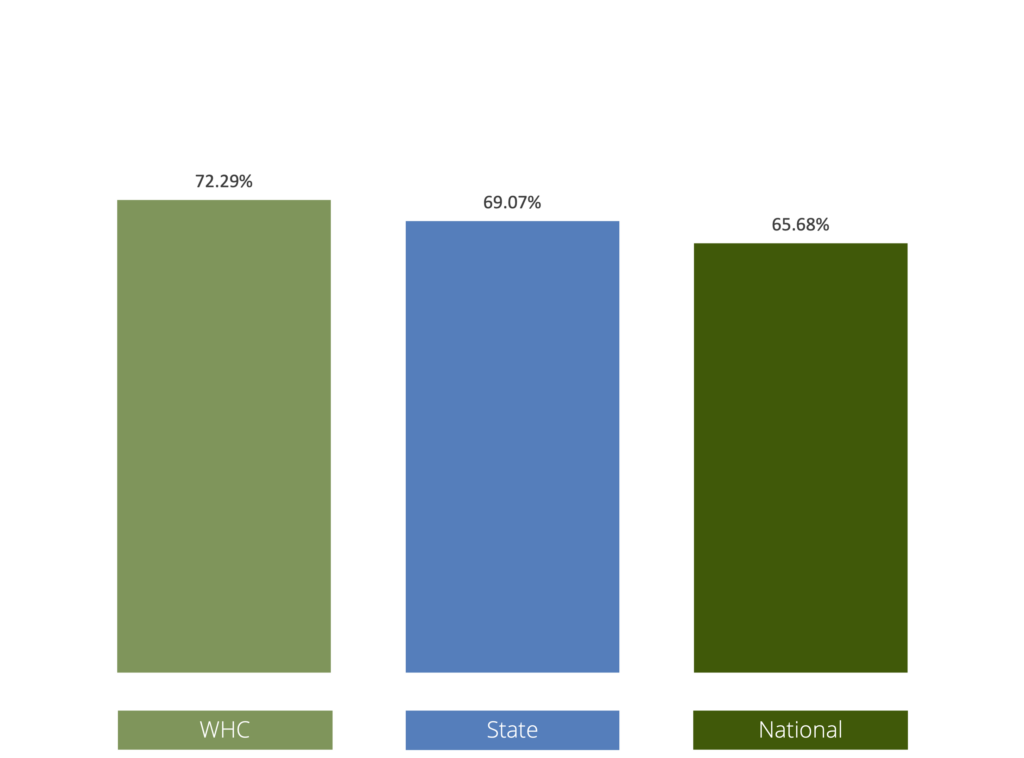
Diabetes: HbA1c Poor Control
Percentage of patients 18–75 years of age with diabetes who had hemoglobin A1c (HbA1c) greater than 9.0 percent during the measurement period.Why this matters?
There will be fewer long-term complications, such as amputations, blindness, and end-organ damage, if there are fewer cases of poorly controlled diabetes.

Cervical Cancer Screening
Percentage of women 21*–64 years of age who were screened for cervical cancer during the age-appropriate timeframe.Why this matters?
Early detection and treatment of cervical abnormalities can occur, and women will be less likely to suffer adverse outcomes from cervical cancer if women receive Pap tests as recommended.

Breast Cancer Screening
Percentage of women 50–74 years of age who had at least one mammogram to screen for breast cancer in the past two years.Why this matters?
Aside from some forms of skin cancer, breast cancer is the most common cancer among American women, regardless of race or ethnicity. Screening can improve outcomes, and early detection reduces the risk of dying from breast cancer and can lead to a greater range of treatment options and lower health care costs.
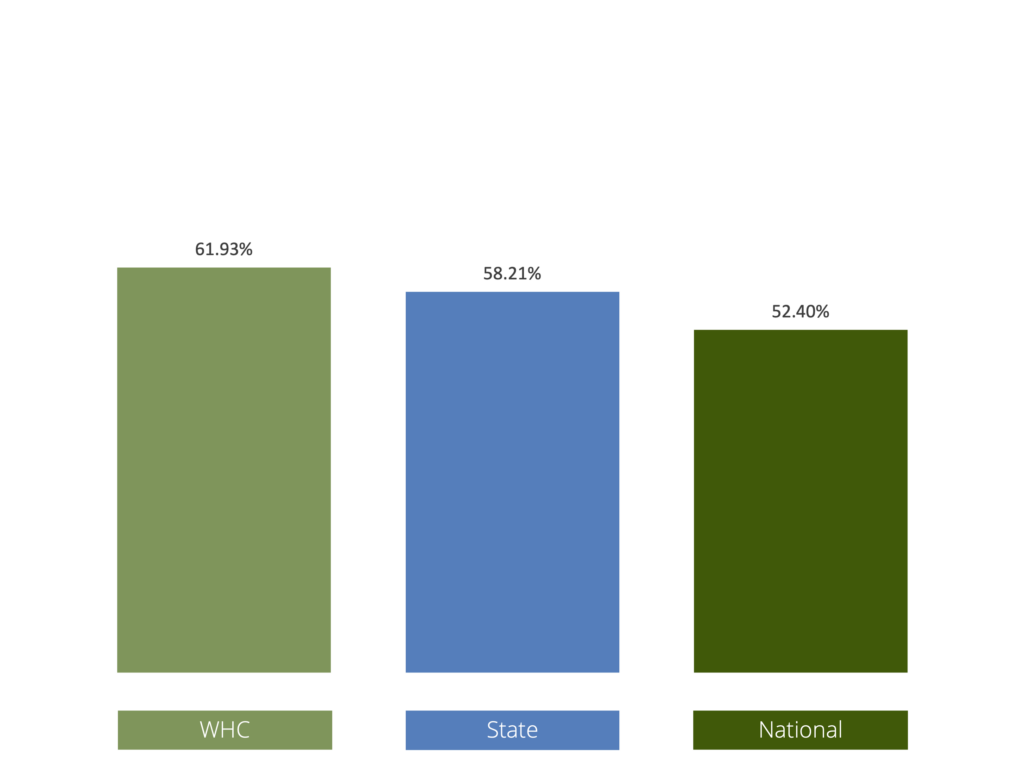
HIV Screening
Percentage of patients aged 15-65 with at least one HIV test ever.Why this matters?
People with HIV who know their status can get HIV treatment and remain healthy for many years. People with HIV who take HIV treatment as prescribed and get to and keep an undetectable viral load will not transmit HIV to their sex partners.
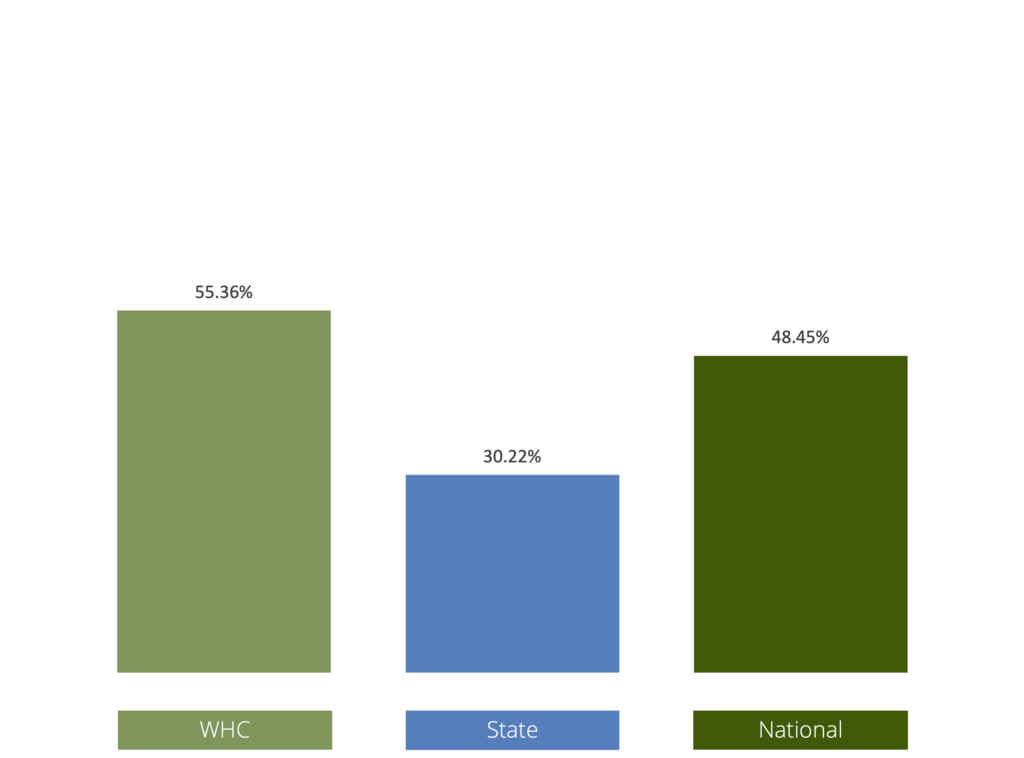
Tobacco Screening and Cessation
Percentage of patients aged 18 years and older who were screened for tobacco use one or more times during the measurement period and who received tobacco cessation intervention if identified as a tobacco userWhy this matters?
Quitting smoking is one of the most important actions people can take to improve their health. This is true regardless of their age or how long they have been smoking. Patients who identify as smokers can access assistance in quitting through their provider care team.

Patient Experience
Patient satisfaction is a commonly used indicator for measuring the quality in health care. Patient satisfaction affects clinical outcomes and patient retention, and gives providers insight into various aspects of medicine, including the effectiveness of their care and their level of empathy.
